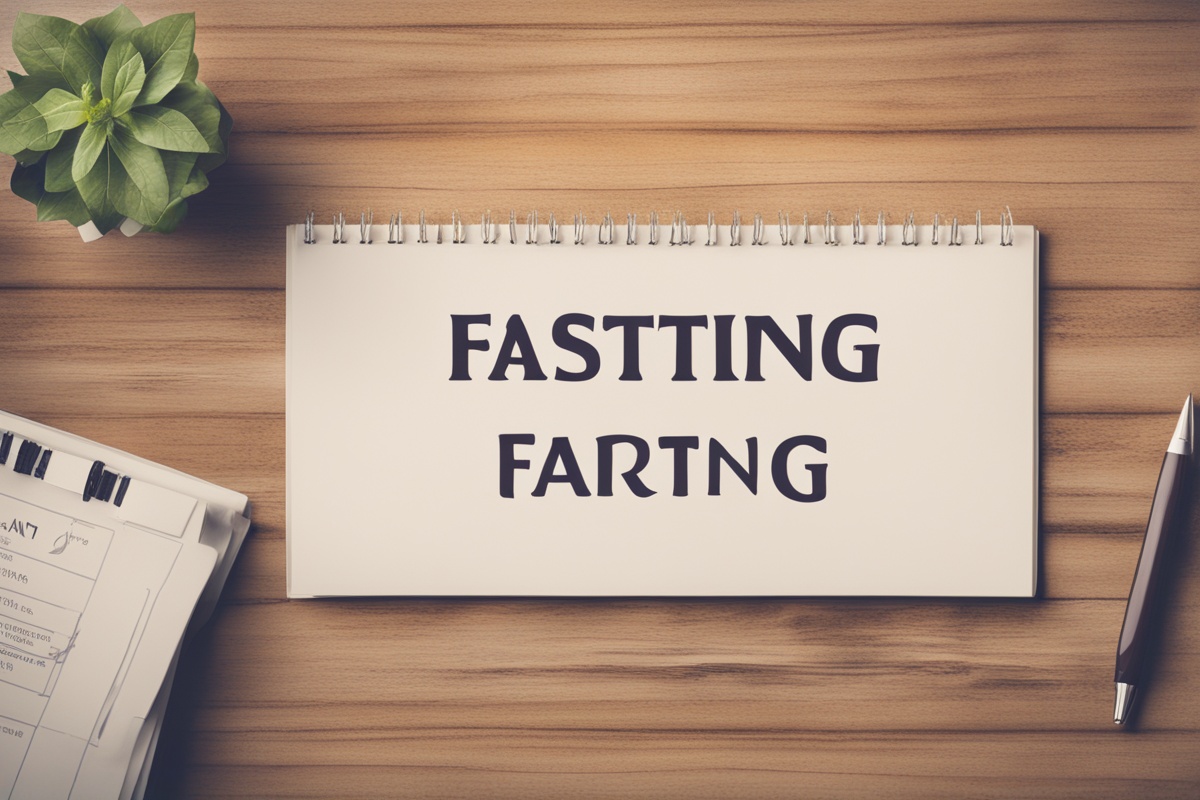Hey there, fasting enthusiasts! If you’ve been diving into the world of fasting as a way to boost your health, lose weight, or simply reset your body, you’ve probably wondered about the science behind it. That’s where fasting clinical trials come in, offering evidence-based insights into how fasting works and why it might be a game-changer for your wellness journey. In this comprehensive fasting guide, we’ll unpack the latest research, explore what these trials reveal about fasting’s benefits and risks, and share practical tips to help you fast safely and effectively. Whether you’re a newbie or a seasoned faster, let’s dig into the fascinating world of fasting science together!
What Are Fasting Clinical Trials?
Before we get into the nitty-gritty, let’s clarify what fasting clinical trials actually are. These are structured scientific studies conducted under controlled conditions to evaluate the effects of fasting on the human body. Researchers often test various fasting methods—like intermittent fasting (IF), prolonged fasting, or time-restricted eating (TRE)—to understand their impact on metabolism, weight loss, inflammation, and even chronic disease prevention. Unlike anecdotal stories or trendy diet claims, clinical trials provide hard data, often published in peer-reviewed journals, giving us a reliable foundation for our fasting guide. These studies typically involve human participants who follow specific fasting protocols while scientists monitor biomarkers like blood sugar, insulin levels, and inflammatory markers (Varady et al., 2021).
Key Findings from Fasting Clinical Trials
The results from fasting clinical trials have been pretty eye-opening, shedding light on how fasting can influence our health in profound ways. One of the most consistent findings is that intermittent fasting can lead to significant weight loss by reducing caloric intake and improving metabolic efficiency (Patterson & Sears, 2017). Beyond weight, studies also show that fasting may lower inflammation—a key driver of chronic conditions like heart disease and diabetes (Mattson et al., 2017). Another exciting area of research is autophagy, a cellular “clean-up” process triggered by fasting, which could play a role in aging and disease prevention (Bagherniya et al., 2018). While these findings are promising for anyone following a fasting plan, it’s worth noting that not all results are universal—individual responses to fasting can vary based on age, gender, and health status.
Popular Fasting Methods Studied in Trials
Not all fasting is created equal, and clinical trials often focus on specific protocols to measure their effects. Here are some of the most studied methods in the realm of fasting research, which you can consider as part of your personal fasting strategy:
- Intermittent Fasting (16/8): This involves fasting for 16 hours and eating within an 8-hour window each day. Trials show it can improve insulin sensitivity (Sutton et al., 2018).
- 5:2 Diet: Participants eat normally for five days and restrict calories to 500–600 on two non-consecutive days. Studies suggest it aids weight loss and metabolic health (Harvie et al., 2011).
- prolonged fasting: This involves fasting for 2–5 days or more, often under medical supervision. Research indicates potential benefits for reducing inflammation (Longo & Mattson, 2020).
- Time-Restricted Eating (TRE): Similar to 16/8, TRE limits eating to a specific window (e.g., 10 a.m. to 6 p.m.). Trials link it to better blood sugar control (Patterson & Sears, 2017).
Potential Benefits Backed by Science
Let’s talk about the perks that have everyone buzzing about fasting. Clinical trials have highlighted a range of benefits that go beyond just shedding a few pounds, making this fasting guide a must-read for health-conscious folks. For starters, fasting can enhance metabolic flexibility, meaning your body gets better at switching between burning carbs and fats for fuel (Mattson et al., 2017). It’s also been linked to improved brain health, with some studies suggesting that fasting boosts the production of brain-derived neurotrophic factor (BDNF), a protein tied to learning and memory (Longo & Mattson, 2020). Plus, for those worried about heart health, fasting may lower blood pressure and cholesterol levels in certain populations (Varady et al., 2021). These science-backed benefits are why so many are turning to a fasting lifestyle—but remember, results aren’t guaranteed for everyone.
Risks and Considerations from Clinical Data
While fasting has its fans, it’s not a one-size-fits-all solution, and clinical trials have flagged some risks worth considering in your fasting journey. For instance, some participants in studies report side effects like hunger, irritability, and fatigue, especially during the initial adjustment period (Harvie et al., 2011). There’s also a concern for people with certain medical conditions—fasting can be risky for those with diabetes or eating disorders, as it may lead to blood sugar imbalances or trigger unhealthy behaviors (Sutton et al., 2018). Additionally, prolonged fasting without proper supervision can cause nutrient deficiencies or muscle loss if not done correctly. The takeaway? Always consult a healthcare provider before starting any fasting regimen, especially if you have pre-existing health issues.
Practical Tips for Starting Your Fasting Journey
Now that we’ve covered the science, let’s get into how you can apply these insights from fasting clinical trials to your own life. If you’re new to fasting or looking to refine your approach, here are some actionable tips to create a sustainable fasting routine based on research and real-world experience:
- Start Small: If you’re a beginner, try a 12/12 schedule (12 hours fasting, 12 hours eating) before jumping into more intense protocols like 16/8.
- Stay Hydrated: Drink plenty of water during fasting windows to avoid dehydration, a common issue noted in trials.
- Focus on Nutrient-Dense Foods: Break your fast with balanced meals rich in protein, healthy fats, and fiber to support recovery and satiety.
- Listen to Your Body: If you feel dizzy or overly fatigued, scale back. Fasting shouldn’t feel like punishment.
- Track Progress: Use a journal or app to monitor how fasting affects your energy, mood, and hunger levels to find what works for you.
By easing into fasting and staying mindful, you can build a fasting practice that aligns with your lifestyle and health goals. And don’t forget—clinical trials often emphasize gradual adaptation for long-term success, so patience is key!
In wrapping up this fasting guide, it’s clear that fasting clinical trials offer a treasure trove of insights for anyone curious about this powerful health tool. From weight loss and metabolic boosts to potential brain and heart benefits, the science is promising—but it’s not without caveats. Fasting isn’t a magic bullet, and individual results can vary widely. That’s why it’s crucial to approach it with knowledge, caution, and ideally, guidance from a professional. Whether you’re tweaking your fasting schedule or just exploring the idea, use the evidence from these trials to make informed choices. Here’s to fasting smarter, not harder, and unlocking a healthier version of yourself!
References
- Bagherniya, M., Butler, A. E., Barreto, G. E., & Sahebkar, A. (2018). The effect of fasting or calorie restriction on autophagy induction: A review of the literature. Ageing Research Reviews, 47, 183–197.
- Harvie, M. N., Pegington, M., Mattson, M. P., et al. (2011). The effects of intermittent or continuous energy restriction on weight loss and metabolic disease risk markers: A randomized trial in young overweight women. International Journal of Obesity, 35(5), 714–727.
- Longo, V. D., & Mattson, M. P. (2020). Fasting: Molecular mechanisms and clinical applications. Cell Metabolism, 31(1), 6–17.
- Mattson, M. P., Longo, V. D., & Harvie, M. (2017). Impact of intermittent fasting on health and disease processes. Ageing Research Reviews, 39, 46–58.
- Patterson, R. E., & Sears, D. D. (2017). Metabolic effects of intermittent fasting. Annual Review of Nutrition, 37, 371–393.
- Sutton, E. F., Beyl, R., Early, K. S., et al. (2018). Early time-restricted feeding improves insulin sensitivity, blood pressure, and oxidative stress even without weight loss in men with prediabetes. Cell Metabolism, 27(6), 1212–1221.






